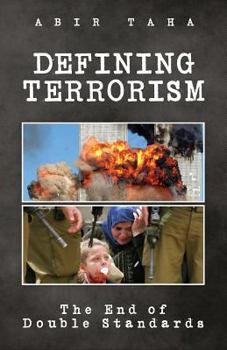Defining Terrorism: The End of Double Standards
'One man's terrorist is another man's freedom fighter': are such movements as Hezbollah, Hamas, the IRA, ETA, the Tamil Tigers, and so on 'terrorists' or 'freedom fighters'? With the absence of a consensus on a clear, universal and permanent definition of terrorism, that famous adage will continue to characterise international relations, and the chaos, confusion and controversy surrounding the term 'terrorist' will continue to lead to double standards in applying international law. Why is there so much confusion when it comes to pinpointing who is a terrorist? The controversy, the author affirms, lies in the definition - or rather, the absence of definition - of terrorism. Indeed, hitherto, the definition of terrorism that has been used, and abused, in international relations has been mainly political, relative, partial, shifting, and selective. The legal dimension has been conspicuously missing. How can terrorism be combated in a fair and efficient manner, asks the author, if it is not first identified? To that end, she lays down the conditions and criteria that are necessary for defining terrorism and thenceforth ending once and for all the double standards in defining and fighting terrorism.
Dr. Taha holds a Ph.D. in Philosophy from the Sorbonne University, Paris, and a Master's degree in Political Science from the American University. A senior career diplomat, she has previously served in Geneva, Paris, and Tokyo, and was appointed in New York in 2019. She speaks fluent English, French and German. In addition to her diplomatic and academic careers, Dr. Taha is also an internationally published author of several books, translated into several languages, and numerous articles, in the fields of Philosophy, Spirituality, Politics, Poetry, and Literature, as well as several works on International Law and Organizations, most of which were adopted as official documents by the UN. Dr. Taha has spent years conducting in-depth research and analysis into Nietzsche's thought, which has led her to assert the importance of the spiritual dimension of his philosophy, derived from the Vedic tradition of India as well as ancient Greek philosophy. Unlike other Nietzsche scholars, who treat him as a purely secular philosopher, Taha believes that this spirituality lies at the very heart of his thought.





